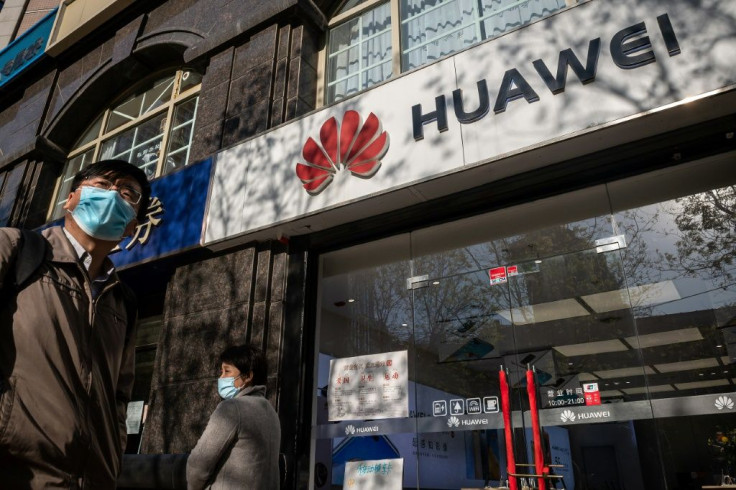China Strikes Back At U.S. Sanctions On Huawei Technologies, Warns Of Repercussions

KEY POINTS
- Last year, the U.S, banned Huawei from the American market
- The U.S. has long maintained that Huawei engages in espionage for Beijing
- Huawei, the world’s second biggest smartphone manufacturer
Chinese tech giant Huawei Technologies has claimed that U.S. sanctions against the company may jeopardize its very survival and create turmoil in the global tech industry.
On Friday, the U.S. Commerce Department, with President Donald Trump’s support, blocked Huawei from receiving semiconductor designs developed via U.S. software and technology, citing that the Chinese firm presents a threat to national security.
Specifically, the Commerce Department said all non-U.S. chipmakers using American chipmaking equipment, intellectual property or design software now need to apply for a license before delivering chips to Huawei.
U.S. officials have accused Huawei of securing chips and components that are manufactured around the world, but which are based on U.S. technology. Last year, the U.S, banned Huawei from the American market, but has allowed U.S. businesses that work with Huawei some time to reorient their business models.
The U.S. has long maintained that Huawei engages in espionage for Beijing – a charge the company denies.
U.S. Commerce Secretary Wilbur Ross said that while Huawei may seek to develop its own components, “that effort is still dependent on U.S. technologies.”
On Monday, Huawei, the world’s largest supplier of telecom network equipment and second biggest smartphone manufacturer, condemned the ban.
“The decision [by the U.S.] was arbitrary and pernicious and threatens to undermine the entire technology] industry worldwide,” Huawei said in a statement.
Huawei also said the U.S. was “leveraging its own technological strengths to crush” foreign firms.
Huawei’s chairman Guo Ping said his company “will inevitably be affected” by the new U.S. directives.
“Survival is the key for us now,” Guo said, urging support from Huawei’s suppliers and customers around the world.
Guo added: “As the challenges over the past year have helped us develop a thicker skin, we are confident about finding solutions soon… Huawei is just like this plane riddled with bullet holes. Over the past year, patching up the holes was our priority… Luckily we have survived so far."
Guo said that Huawei spent about $18.7 billion last year buying from U.S. suppliers.
Huawei further said the U.S. decision “will have a serious impact on a wide number of global industries” by upending the chip sector and threatening technology supply chains.
China’s Ministry of Commerce also warned it will take “necessary measures” to protect Huawei.
Huawei is slated to become a dominant global player in fifth-generation, or 5G, wireless networks.
Although China is aggressively developing its own semiconductors, the country lags far behind the U.S., Japan and South Korea.
Nonetheless, China warned that the U.S. was harming its own interests by clamping down on Huawei.
“Any other country or company with more advanced technologies may put U.S. [technological] supremacy at risk,” Guo said.
Huawei also warned that the U.S. decision will “damage the trust and collaboration within the global semiconductor industry and could increase conflict and loss within these industries.”
"The proposed legislation likely aims to stop Huawei's tech progress and quash China's 5G ambitions," said Jefferies Equity Research analysts in a research note. "We expect China to retaliate if this materializes. The risk of a 'super' cold war is mounting."
The ban has already hurt Huawei’s business.
Taiwan Semiconductor Manufacturing Co. (TSM), the world's largest contract chipmaker, has halted new orders from Huawei in response to U.S. export controls.
"TSMC has stopped taking new orders from Huawei after the new rule change was announced to fully comply with the latest export control regulation," a source told Nikkei Asian Review. "But those already in production and those orders which TSMC took before the new ban are not impacted and could continue to proceed if those chips could be shipped before mid-September."
Another source told Nikkei: "It's a difficult decision for TSMC, as Huawei is the company's No. 2 customer, but the chipmaker has to follow the U.S. rules.”
Huawei is TSMC's second biggest client behind only Apple (AAPL), representing 15% to 20% of TSMC’s annual revenues.
© Copyright IBTimes 2024. All rights reserved.



















